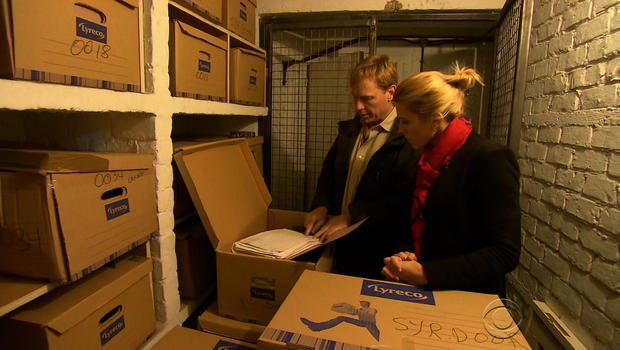At secret location, team collects evidence of Syrian war crimes
Ten members of one family, including eight children, were killed overnight in Syria.
The body of a child was pulled from a home after forces of the Syrian dictatorship fired a ballistic missile into a residential neighborhood. Twenty-three civilians were killed.
The civil war began three years ago as an uprising against the dictatorship. It is now an all-out war between the two main branches of the Islamic faith.
More than 160,000 people have been killed. Atrocities are committed on both sides. On Monday, 58 countries urged the United Nations to refer these war crimes to the international criminal court. One man is on a mission to make sure the evidence from the most vicious war of our time is not lost to history.
This is a war that's being uploaded on the Internet every day, a real-time record of potential war crimes.
Canadian lawyer William Wiley advised the Iraqi tribunal that tried Saddam Hussein. He and his team have collected and combed through more than half a million videos.
But the most crucial element of this work is collecting a paper trail.
In a cramped basement, Wiley showed a CBS News crew boxes of documents so sensitive we can't tell you where the Syrian Commission for Justice and Accountability is based.
"This one here has about 200,000 pages of regime documentation," Wiley said, pointing to one box.
The documents include military orders and government records, all of which had to be smuggled out of Syria.
It's very dangerous work, Wiley says.
"We're threatened by both sides. We're threatened by the regime, obviously, but our people are also threatened by the radical Islamists, the al Qaeda affiliates in particular who don't share our concept of impartial justice," he said.
Syrian activists are being trained to collect evidence for the Commission, which is funded by the U.S., Britain and the European Union. Before the activists go back to Syria, they're taught how to talk to witnesses and document a crime scene.
"If you want to be an investigator, start thinking like an investigator," said former British police investigator Peter Wilson, who talked to the volunteers about sexual violence as a war crime.
Among them was 24-year-old Ali.
"What about the victims? Who will care? We will care. We have to care," he said.
Both sides have used rape as a weapon in this war. Ali said sexual violence must be treated as a crime, just like any other physical violence.
"I think it's more dangerous because that one is physical and emotional," he said.
The volunteers have a common purpose.
"They are unified by the idea of a Syria built on the rule of law," Wiley said.
Wiley hopes the commission's findings will eventually be used to prosecute war crimes in an international tribunal.
The evidence is ready, but before justice can be done, the fighting has to stop.
